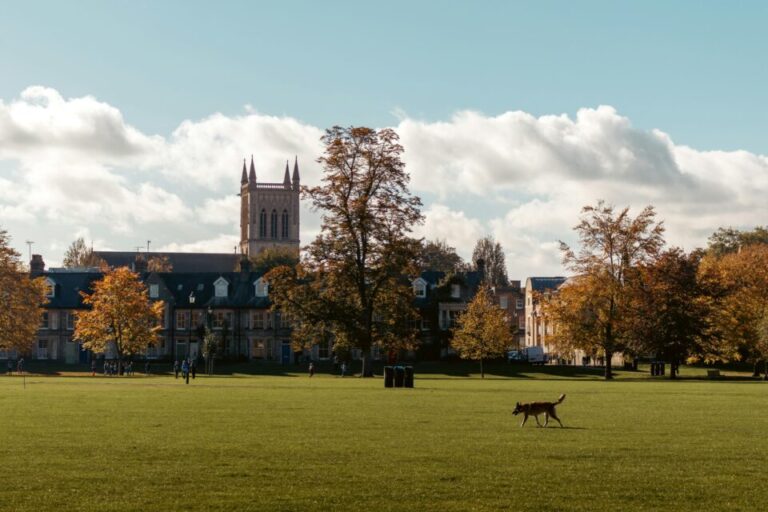Cambridge University is an institution where millions of people dream of schooling. The university’s rankings always place it among the top-ranked institutions in the world, maintaining its prominent position as a leader in academic excellence among the best universities in the world.
As one of the most sought-after educational institutions, Cambridge University draws a highly competitive pool of applicants from all around the world.
Cambridge’s acceptance rate is an important consideration for prospective students, as it’ll help them make informed decisions as they pursue a course of study here. In this piece, we’ll look at Cambridge acceptance rate.
Understanding the Acceptance Rate
The acceptance rate represents the proportion of candidates who obtain admission offers from a given university, and it is an important indicator of how tough the admissions process is.
A low acceptance rate demonstrates competition among candidates, whereas a high acceptance rate indicates a less rigorous screening procedure.
The acceptance rate helps students judge their admission status. We recognize the relevance of Cambridge University acceptance rates in molding students’ futures and use them to make educated judgments.
Similarly, the University of Cambridge’s acceptance rate for overseas students is critical in providing them with a clear picture of the areas in which they must excel to gain admission to this prestigious university.
By looking into Cambridge University’s acceptance rate for international students, aspiring applicants can discover areas for growth and adjust their efforts to boost their chances of admission.
Cambridge University Acceptance Rate
Cambridge University’s admission rate is normally about 20–21%. Although this appears to be more generous than acceptance rates at top American colleges, it is critical to realize the increased requirements for Cambridge applications.
Notably, there is a unique constraint: a student can only apply to Oxford or Cambridge and the application is limited to five UK universities in a single academic year.
Cambridge University has an acceptance rate of approximately 18-19% for undergraduate students and 34% for postgraduate students.
Now, here’s the reality: those acceptance rates aren’t one-size-fits-all. Your chances vary depending on your field of study and the college you want to attend. For subjects like medicine and law, they are more ruthless, with acceptance rates as low as 10%.
What distinguishes Cambridge is its collegiate system. It’s more than simply studying; it’s about being a member of a close-knit community that supports you intellectually and socially. When applying to a Cambridge institution, you can either choose a specific college or let the institution handle the matching, placing you in a college that matches your preferences.
Which University of Cambridge Acceptance Rate is the Most Competitive?
Cambridge University comprises 31 colleges, each with its own particular history. Here’s the scoop: Murray Edwards takes the title of “most accepting” with a 35% acceptance rate.
Homerton and Robinson follow closely behind, with acceptance rates over 30%. While these universities may not be as well-known, they do provide a less competitive environment than the more well-known alternatives.
Flip the script and you have seasoned champions like Trinity, King’s, and St John’s. They boast acceptance rates ranging between 10% and 20%.
Every year, these colleges receive a high volume of applicants. But here’s the twist: admission percentages fluctuate depending on what you’re studying. Some colleges may have high admission rates, while others may not.
Top Programs at Cambridge University
Cambridge University offers a wide range of great academic programs across multiple fields. The university’s recognized reputation spans a wide range of academic disciplines, from engineering and natural sciences to social sciences and humanities.
These programs generate a lot of interest from applicants, which adds to the competitiveness of the admissions process. These are the top five programs at Cambridge University.
1. Archaeology
- Cambridge University Acceptance rate: 48% (undergraduates)
Archaeology is one of the most dynamic and least competitive degrees offered at Cambridge University. Students get the opportunity to explore, learn and conduct research on topics ranging from time locales to the impact of the plague on medieval Cambridge.
2. Modern Language
- Cambridge University Acceptance Rate: 46% (Undergraduates)
With globalization, the world is becoming more accessible, so wouldn’t it be amazing to learn about various cultures and languages?
The institution provides numerous chances for students to learn major European languages, such as French and German, as well as some non-European languages.
3. Anatomy & Physiology
- Cambridge University Acceptance Rate: 67% (Doctorate)
The University of Cambridge has tailored its curriculum specifically for this course, providing students with hands-on dissection and the opportunity to participate in anatomical research to gain a greater grasp of the human body’s structure.
4. Linguistics
- Cambridge University Acceptance Rate: 36% (Undergraduates)
The linguistics degree allows students to gain a thorough understanding of languages, as well as context, form, and structure.
If students enroll in a linguistics course at Cambridge University, they will analyze and understand not only quantitative data but also how to develop abstract grammatical models and test competing hypotheses.
5. English Language and Literature
- Cambridge University Acceptance Rate: 34% (Undergraduates)
The English language and literature course covers all of history up to the present day. Students have the opportunity to study more about the language and how it has evolved from the medieval period to the present day.
Admission Rates and Enrollment Requirements
Cambridge University’s admission reflects the institution’s commitment to academic excellence and the development of keen minds.
Though the specifics may differ depending on your course and college, the constant thread is a desire for a strong intellectual foundation. More details are:
Documents Required
- Provide 2-3 letters of reference
- Personal statement
- Curriculum vitae
- Work experience
Dates and Deadlines
The application deadlines at Cambridge University are crucial milestones on the path to becoming a member of the prestigious academic community.
These deadlines, which are determined by the course and the applicant’s status, are carefully chosen to enable a methodical and fair review of all applications.
Tips for Boosting Your Chances at Cambridge
If you’re interested in attending Cambridge, here are some pointers to help you prepare:
- Maintain great marks throughout your academic experience.
- Choose subjects that align with your ideal course.
- Create a compelling personal statement that highlights your enthusiasm, motivation, and suitability for your chosen area.
- Demonstrate subject-specific skills to succeed in entrance tests.
- If asked for written work, demonstrate your academic and research skills.
- Provide context to assist others in understanding your achievements in light of your particular circumstances.
- Obtain positive references from professors who know you well and are supportive.
- Demonstrate strong analytical skills and enthusiasm for your subject during interviews.
- Provide a comprehensive picture by exploring extracurricular activities, community service, and related professional experiences.
Why Study at the Cambridge University?
Aside from the acceptance rate, Cambridge University has other compelling reasons to consider it as your educational destination. Here are some of the top reasons to study in Cambridge:
1. Strong Reputation
Cambridge University is worldwide known for its teaching and research quality, offering a world-class education that is well-regarded across disciplines.
2. College Life and Facilities
The university offers a vibrant and enriching campus life with cutting-edge facilities, libraries and research centers. Students have access to a variety of resources and amenities that enrich their academic experience.
3. Industry Connections
Cambridge University has extensive industrial partnerships, which provide invaluable possibilities for internships, placements, and professional networking. Students can obtain practical experience and make vital contacts for future professional opportunities.
4. A supportive learning environment
The university promotes a supportive and inclusive learning environment, offering students academic support services, career coaching, and a wide choice of extracurricular activities. Cambridge values student well-being and personal growth.
5. Research Opportunities
Cambridge University is widely renowned for its research excellence. Students have the opportunity to participate in groundbreaking research initiatives and contribute to advancements in their particular professions while under the supervision of renowned faculty members.
FAQs
Is Cambridge difficult to get into?
Cambridge’s admission rate is roughly 20%. This low rate shows the institution’s unwavering dedication to academic excellence and rigorous selection procedure, which has earned it a place among the world’s most competitive universities.
What GPA do you need to go to Cambridge?
To be eligible for admission to the University of Cambridge in the United Kingdom, students must maintain a minimum GPA of 3.7.
Which Cambridge course has the highest acceptance rate?
Courses like Music, Modern and Medieval languages, and History have the highest Cambridge admission rate when compared to other subjects.
How much does Cambridge cost for international students?
International students applying to undergraduate courses at the University of Cambridge should expect to spend anything from EUR 24,507 to EUR 63,990. Students who apply for postgraduate studies can expect to pay an average of EUR 30,339.
Conclusion
So, that’s it for the Cambridge acceptance rate and other things to note about getting admission into this prestigious institution of higher learning.
While Cambridge has a moderate admission rate, it is crucial to recognize that the academic criteria and selection procedure are demanding.
Aspiring students should prioritize academic achievement, showcase their skills, undertake extensive study on their selected programs, seek advice, and demonstrate a genuine interest in the university.


